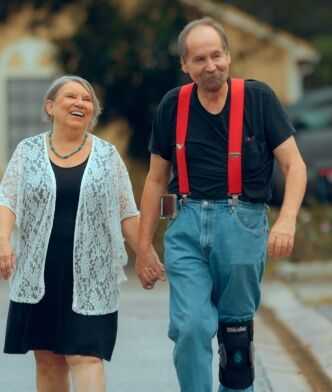Skull Fracture Symptoms
Skull Fracture Symptoms
- The Fee Is Free Unless You Win®.
- America's Largest Injury Law Firm™
- Protecting Families Since 1988
- 20 Billion+ Won
- 1,000+ Lawyers Nationwide
Free Case Evaluation
Porter Ranch Gas Leak
Jacob T. Rodgers v. City of Gainesville D/B/A Gainesville Regional Utilities
Estate of Frank Townsend v. RJ Reynolds, et al.
Morgan Stanley Data Security Litigation
Stephen Davis v. Levon Clark, Ricardo Williams, Marty Grifka and Derek Pak
McAdams v. Monier Lifetile, LLC
Coleman v. Martinez
Gold v. Lumber Liquidators
Clemmons, Patrick
Brink v. Ruiz

The attorneys featured above are licensed in Florida. For a full list of attorneys in your state please visit our attorney page.
Skull Fracture Symptoms
Head injuries are incredibly dangerous to withstand. Even minor damage to a person’s head may result in lifelong medical conditions.
As such, if you’ve recently sustained a serious head injury, you may be wondering about the most common skull fracture symptoms to understand whether you are experiencing such a condition, which occurs when one or more of the bones that compose the skull become cracked or broken as the result of an accident or other mishap.
Victims of these serious injuries often face skyrocketing medical costs, lost incomes, and other losses associated with the incident, but they should not be held responsible for covering the costs that another person’s recklessness caused.
With that being said, if you’ve fractured your skull as the direct result of another person’s negligence, you may be owed financial compensation for the harm you have experienced. Speak with one of the accomplished legal professionals at Morgan & Morgan. Our compassionate personal injury attorneys understand the legal and financial consequences of skull fracture symptoms.
With decades of experience representing accident and injury victims across the country under our belts, you can rest assured that we will fight tirelessly to recover the compensation to which you are entitled when we handle your case. Perhaps more importantly, though, you will not pay any legal fees unless we win or successfully settle your claim.
Complete the contact form on the Morgan and Morgan website now to schedule a free legal case evaluation with a member of our friendly staff.
Common Skull Fracture Symptoms
The extent of the symptoms associated with a skull fracture may vary depending on the location of the injury. Signs and symptoms will also vary depending on the severity of the fracture. Nevertheless, some of the most prevalent skull fracture symptoms are as follows:
Persistent Headache
One of the most common skull fracture symptoms is a persistent headache, which may be localized to the site of the injury or cause pain that radiates throughout the head. The severity of the headache can range from mild to severe, and it may become worse over time if the headache is, indeed, the result of a skull fracture. These sorts of recurring headaches may also cause secondary symptoms, such as dizziness, nausea, and vomiting.
Bleeding
Another prevailing sign of a skull fracture is bleeding from the scalp or ears that may be mild or severe. The rate and intensity of blood loss will depend on the extent of the fracture, but bleeding can occur even in cases where it is not obvious: Some skull fracture victims experience internal bleeding.
Bruising and Swelling
Bruising around the victim’s eyes and ears is also a common sign of skull fracture, and it is often a byproduct of the severe impact that caused the skull bone to break in the first place.
Swelling is also common in skull fracture victims. The area near and around the fracture site may swell, but the swelling can also be widespread, due in large part to the body’s inflammatory response that follows such intense head trauma.
Changes in Vision
Changes in vision also make up a typical symptom of a skull fracture, as victims of these injuries may experience damage to the optic nerve or other parts of the brain, leading to vision-related issues. Some of the most common vision-related symptoms include such conditions as blurred vision, double vision, and a loss of vision altogether.
Confusion or Memory Loss
Skull fractures, like many other forms of head trauma, have the potential to cause the victim to become dazed, confused, and disoriented. Memory loss is also a symptom of traumatic brain injuries (TBIs) like concussions. Victims may be unable to recall the events that lead up to their injury.
These psychological symptoms can cause injury victims enormous amounts of difficulty and distress, though fortunately, they can seek compensation from the at-fault party, even for the intangible harms that result from these particular conditions.
Unconsciousness
In the most severe cases of head trauma, a victim may experience a total loss of consciousness. It may happen immediately after the inciting incident, but that is not necessarily the rule, given that, in some instances, the person will not lose consciousness until much later.
The unconsciousness caused by a skull fracture may last only a few seconds or leave the person unresponsive for much longer. Regardless of the duration, it is vital that someone seek medical attention for you as quickly as possible if you black out.
Further Symptoms
There are many other symptoms that can result from a fractured skull, including but not limited to the following:
- Sensitivity to light and sound
- Mood and personality shifts
- Difficulty breathing
- Changes in sleep patterns
It is important to have a medical professional review each of the symptoms you experience after an accident or mishap resulting in head trauma to rule out a potential skull fracture.
Accidents That May Cause Skull Fractures
As mentioned earlier, skull fractures are breaks in the bone that surrounds the soft tissue of the brain. Skull fracture symptoms can vary depending on the severity of the impact and the seriousness of the resulting damage. If you are showing any skull fracture symptoms, seek medical attention as soon as possible.
Nevertheless, mishaps that cause a person’s head to withstand a significant force or impact are most likely to cause the skull to fracture. Some of the most common accidents that may result in skull fractures are as follows:
Motor Vehicle Collisions
Because of the size, weight, and speed of the vehicles involved, car accidents are among the leading causes of head injuries, and victims are at heightened risk of skull fractures.
During an automotive accident, a person’s head may collide with any of the following objects:
- The steering wheel
- The dashboard
- The windshield
- Other hard surfaces of the vehicle’s interior
These collisions are much more likely if the person is not wearing a seatbelt, and the impact can cause the victim’s skull to fracture.
However, even if the person’s head does not collide with an object or surface, a skull fracture may occur. A sudden, violent jolt can cause the person’s brain to be jostled around inside their skull, and such intense movement of that kind may result in a small skull fracture. On a similar note, traumatic brain injuries are also a common outcome of car accidents.
Falling Accidents
Skull fractures are also commonly caused by falls and similar accidents. Falls from a significant height, such as from a roof or ladder, can apply a significant amount of force to the person’s head, and skull fractures are especially common when the person hits the ground headfirst. Still, even if the victim does not fall from a significant height, skull fractures are possible, especially if a person falls onto a hard surface like concrete or tile.
Tragically, elderly individuals and children are particularly susceptible to fall-related skull fractures. Kids tend to lose their balance on playground equipment, or while engaging in sporting activities, and for older adults, falls may be the result of balance issues, side effects from medications, or medical conditions. Bone-related medical conditions, like osteoporosis, increase the risks of falling accidents in older individuals.
Sports Injuries
Injuries suffered while engaging in sporting activities are particularly dangerous. Many athletes, professional and amateur, suffer from skull fractures. These injuries are especially common in contact sports, such as:
- Football
- Hockey
- Boxing
- Mixed martial arts
Even non-contact sporting accidents can also cause skull fractures. Diving and gymnastics, for instance, present a significant risk of head injuries. During practice, in a game, or during an event, players and competitors may collide with each other or with other objects, causing significant blows to the head that can lead to skull fractures.
Work-Related Incidents
Certain sectors, such as the manufacturing and construction industries, present an increased risk of injuries to their workers that may result in skull fractures in the most severe cases.
For instance, employees may be struck in the head by falling objects or loose debris. They may also be required to stand on scaffolding or other elevated areas, making perilous falls possible. In some cases, accidents may occur because of faulty or defective machinery. When these happen, skull fracture injuries are especially likely.
Even when employees use safety gear, such as helmets, incidents that cause head injuries can still transpire.
Explosions
Whether they are caused by natural gas leaks, military combat, or fireworks, explosions are incredibly hazardous. The force from an explosive blast can cause significant head trauma, including skull fractures. Furthermore, these blasts can also cause other head or brain injuries, such as concussions or contusions.
These are only a few examples of the types of accidents that may lead to skull fractures. If you have recently suffered any form of head trauma, even if you feel as though it is relatively minor, it is critical that you seek medical attention as soon as possible. A medical professional can review the skull fracture symptoms you may be experiencing and offer you an accurate diagnosis.
In addition, you should also consult with a skilled personal injury attorney to pursue the compensation you deserve. When another party is at fault for the harm you’ve sustained, they should be held financially accountable. The lawyers at Morgan and Morgan will determine the value of your case and fight to recover what you are owed.
Head injuries are incredibly dangerous to withstand. Even minor damage to a person’s head may result in lifelong medical conditions.
As such, if you’ve recently sustained a serious head injury, you may be wondering about the most common skull fracture symptoms to understand whether you are experiencing such a condition, which occurs when one or more of the bones that compose the skull become cracked or broken as the result of an accident or other mishap.
Victims of these serious injuries often face skyrocketing medical costs, lost incomes, and other losses associated with the incident, but they should not be held responsible for covering the costs that another person’s recklessness caused.
With that being said, if you’ve fractured your skull as the direct result of another person’s negligence, you may be owed financial compensation for the harm you have experienced. Speak with one of the accomplished legal professionals at Morgan & Morgan. Our compassionate personal injury attorneys understand the legal and financial consequences of skull fracture symptoms.
With decades of experience representing accident and injury victims across the country under our belts, you can rest assured that we will fight tirelessly to recover the compensation to which you are entitled when we handle your case. Perhaps more importantly, though, you will not pay any legal fees unless we win or successfully settle your claim.
Complete the contact form on the Morgan and Morgan website now to schedule a free legal case evaluation with a member of our friendly staff.
Common Skull Fracture Symptoms
The extent of the symptoms associated with a skull fracture may vary depending on the location of the injury. Signs and symptoms will also vary depending on the severity of the fracture. Nevertheless, some of the most prevalent skull fracture symptoms are as follows:
Persistent Headache
One of the most common skull fracture symptoms is a persistent headache, which may be localized to the site of the injury or cause pain that radiates throughout the head. The severity of the headache can range from mild to severe, and it may become worse over time if the headache is, indeed, the result of a skull fracture. These sorts of recurring headaches may also cause secondary symptoms, such as dizziness, nausea, and vomiting.
Bleeding
Another prevailing sign of a skull fracture is bleeding from the scalp or ears that may be mild or severe. The rate and intensity of blood loss will depend on the extent of the fracture, but bleeding can occur even in cases where it is not obvious: Some skull fracture victims experience internal bleeding.
Bruising and Swelling
Bruising around the victim’s eyes and ears is also a common sign of skull fracture, and it is often a byproduct of the severe impact that caused the skull bone to break in the first place.
Swelling is also common in skull fracture victims. The area near and around the fracture site may swell, but the swelling can also be widespread, due in large part to the body’s inflammatory response that follows such intense head trauma.
Changes in Vision
Changes in vision also make up a typical symptom of a skull fracture, as victims of these injuries may experience damage to the optic nerve or other parts of the brain, leading to vision-related issues. Some of the most common vision-related symptoms include such conditions as blurred vision, double vision, and a loss of vision altogether.
Confusion or Memory Loss
Skull fractures, like many other forms of head trauma, have the potential to cause the victim to become dazed, confused, and disoriented. Memory loss is also a symptom of traumatic brain injuries (TBIs) like concussions. Victims may be unable to recall the events that lead up to their injury.
These psychological symptoms can cause injury victims enormous amounts of difficulty and distress, though fortunately, they can seek compensation from the at-fault party, even for the intangible harms that result from these particular conditions.
Unconsciousness
In the most severe cases of head trauma, a victim may experience a total loss of consciousness. It may happen immediately after the inciting incident, but that is not necessarily the rule, given that, in some instances, the person will not lose consciousness until much later.
The unconsciousness caused by a skull fracture may last only a few seconds or leave the person unresponsive for much longer. Regardless of the duration, it is vital that someone seek medical attention for you as quickly as possible if you black out.
Further Symptoms
There are many other symptoms that can result from a fractured skull, including but not limited to the following:
- Sensitivity to light and sound
- Mood and personality shifts
- Difficulty breathing
- Changes in sleep patterns
It is important to have a medical professional review each of the symptoms you experience after an accident or mishap resulting in head trauma to rule out a potential skull fracture.
Accidents That May Cause Skull Fractures
As mentioned earlier, skull fractures are breaks in the bone that surrounds the soft tissue of the brain. Skull fracture symptoms can vary depending on the severity of the impact and the seriousness of the resulting damage. If you are showing any skull fracture symptoms, seek medical attention as soon as possible.
Nevertheless, mishaps that cause a person’s head to withstand a significant force or impact are most likely to cause the skull to fracture. Some of the most common accidents that may result in skull fractures are as follows:
Motor Vehicle Collisions
Because of the size, weight, and speed of the vehicles involved, car accidents are among the leading causes of head injuries, and victims are at heightened risk of skull fractures.
During an automotive accident, a person’s head may collide with any of the following objects:
- The steering wheel
- The dashboard
- The windshield
- Other hard surfaces of the vehicle’s interior
These collisions are much more likely if the person is not wearing a seatbelt, and the impact can cause the victim’s skull to fracture.
However, even if the person’s head does not collide with an object or surface, a skull fracture may occur. A sudden, violent jolt can cause the person’s brain to be jostled around inside their skull, and such intense movement of that kind may result in a small skull fracture. On a similar note, traumatic brain injuries are also a common outcome of car accidents.
Falling Accidents
Skull fractures are also commonly caused by falls and similar accidents. Falls from a significant height, such as from a roof or ladder, can apply a significant amount of force to the person’s head, and skull fractures are especially common when the person hits the ground headfirst. Still, even if the victim does not fall from a significant height, skull fractures are possible, especially if a person falls onto a hard surface like concrete or tile.
Tragically, elderly individuals and children are particularly susceptible to fall-related skull fractures. Kids tend to lose their balance on playground equipment, or while engaging in sporting activities, and for older adults, falls may be the result of balance issues, side effects from medications, or medical conditions. Bone-related medical conditions, like osteoporosis, increase the risks of falling accidents in older individuals.
Sports Injuries
Injuries suffered while engaging in sporting activities are particularly dangerous. Many athletes, professional and amateur, suffer from skull fractures. These injuries are especially common in contact sports, such as:
- Football
- Hockey
- Boxing
- Mixed martial arts
Even non-contact sporting accidents can also cause skull fractures. Diving and gymnastics, for instance, present a significant risk of head injuries. During practice, in a game, or during an event, players and competitors may collide with each other or with other objects, causing significant blows to the head that can lead to skull fractures.
Work-Related Incidents
Certain sectors, such as the manufacturing and construction industries, present an increased risk of injuries to their workers that may result in skull fractures in the most severe cases.
For instance, employees may be struck in the head by falling objects or loose debris. They may also be required to stand on scaffolding or other elevated areas, making perilous falls possible. In some cases, accidents may occur because of faulty or defective machinery. When these happen, skull fracture injuries are especially likely.
Even when employees use safety gear, such as helmets, incidents that cause head injuries can still transpire.
Explosions
Whether they are caused by natural gas leaks, military combat, or fireworks, explosions are incredibly hazardous. The force from an explosive blast can cause significant head trauma, including skull fractures. Furthermore, these blasts can also cause other head or brain injuries, such as concussions or contusions.
These are only a few examples of the types of accidents that may lead to skull fractures. If you have recently suffered any form of head trauma, even if you feel as though it is relatively minor, it is critical that you seek medical attention as soon as possible. A medical professional can review the skull fracture symptoms you may be experiencing and offer you an accurate diagnosis.
In addition, you should also consult with a skilled personal injury attorney to pursue the compensation you deserve. When another party is at fault for the harm you’ve sustained, they should be held financially accountable. The lawyers at Morgan and Morgan will determine the value of your case and fight to recover what you are owed.
Get answers to commonly asked questions about our legal services and learn how we may assist you with your case.
Morgan & Morgan
How Long Do I Have to File a Personal Injury Claim Following a Skull Fracture?
Speak with a Morgan and Morgan attorney as soon as possible following any head injury. The statute of limitations on a skull fracture injury case will depend on the state in which you are filing, and though the statute of limitations on personal injury claims may range between two and six years, do not wait.
Does Morgan & Morgan Charge for Case Evaluations?
No. Our understanding legal team knows that head injury victims have enough to deal with. For that reason, we provide all prospective clients with a no-cost case evaluation. In fact, you will pay nothing for legal representation unless we secure a positive outcome for your case!
Morgan and Morgan Offers Premiere Legal Services
If another person’s negligence resulted in a personal injury to you or a loved one, do not hesitate. The attorneys at Morgan & Morgan have the legal skills and experience necessary to build a powerful case for you. To consult with one of our legal professionals, complete the simple form on our website today. Let us review the facts of your case and get the money you deserve.
How it works
It's easy to get started.
The Fee Is Free Unless You Win®.
Results may vary depending on your particular facts and legal circumstances.
Step 1
Submit
your claimWith a free case evaluation, submitting your case is easy with Morgan & Morgan.
Step 2
We take
actionOur dedicated team gets to work investigating your claim.
Step 3
We fight
for youIf we take on the case, our team fights to get you the results you deserve.






